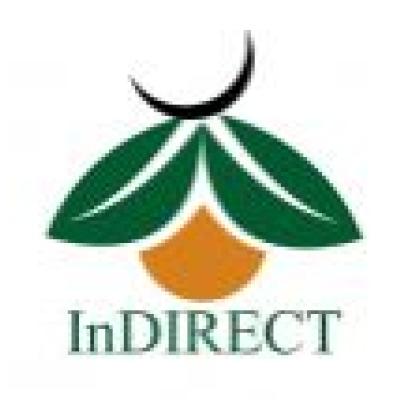
InDIRECT
Direct and indirect biorefinery technologies for conversion of organic side-streams into multiple marketable products

Direct and indirect biorefinery technologies for conversion of organic side-streams into multiple marketable products
The InDIRECT project aims to develop the use of indirect cascading biorefinery processes to convert underspent side streams from the agricultural and processing sectors into useful and marketable products.
The anticipated sidestreams include plant biomass from the primary, processing and retail sectors as well as other organic side-streams. A three-step bio-refinery model will be used to convert the varying side stream feedstocks into a homogenous biomass. In a unique and innovative approach, insects will be used to convert several side stream feedstocks into a more homogenous biomass, utilising their own biomass.
The resulting insect biomass will be processed (fractionalised) into crude extracts, which will then be purified and converted into new products and compounds. Anticipated products from the InDIRECT project include proteins and oligopeptides, Lipids, chitin, chitosan and derivatives, N-light compost and minor compounds.
The InDIRECT proposal aims to contribute to a post-petroleum society by exploring the potential of biorefinery approaches for waste recycling and re-use goals.
InDIRECT proposes new value chains for transforming agricultural and other side-streams into marketable products (and energy) via a cascading biorefinery approach, in a sustainable way, resulting in a significant reduction of greenhouse gases emissions.
Destructive insects produce high-value products from organic waste
10 November 2021
BBI JU-funded researchers and industry are putting insects to work – from termites that destroy wooden buildings to insect larvae that are outstanding natural waste converters. Packaging, cosmetics, pharmaceuticals and animal feed are just some of the products they are beetling away to make for us. Read more